Reuters interviewed 20 people under the age of 30 to understand their support. The most common reason given for backing the former president was inflation and the perception the economy was not working for them, underscoring how the rise in prices for daily staples is more salient for some than high stock prices and low unemployment during the Biden years. […] At the same time, a majority said they agreed with Trump's reticence about aiding Ukraine in its war with Russia, an isolationist stance at odds with Biden's foreign policy agenda.
Archive link <https://archive.is/xZVYs>
Check that https://lemmy.dbzer0.com/post/3080693
UK ministers are set to announce a further delay to post-Brexit border controls on animal and plant products coming from the EU, amid fears that extra bureaucracy on imported goods will fuel inflation.
The decision to delay the new import regime at Britain’s ports, which had been due to start in October, is also intended to give companies and port operators yet more time to implement the arrangements.
The news comes ahead of a meeting of the Bank of England’s monetary policy committee on Thursday, which is wrestling with persistently high inflation.
There have been repeated delays to the introduction of a post-Brexit border control regime for goods entering the UK from the EU. British exports to the EU are already subject to full checks.
Rishi Sunak says he wants to protect the price of your pint - but membership in the EU didn’t stop him
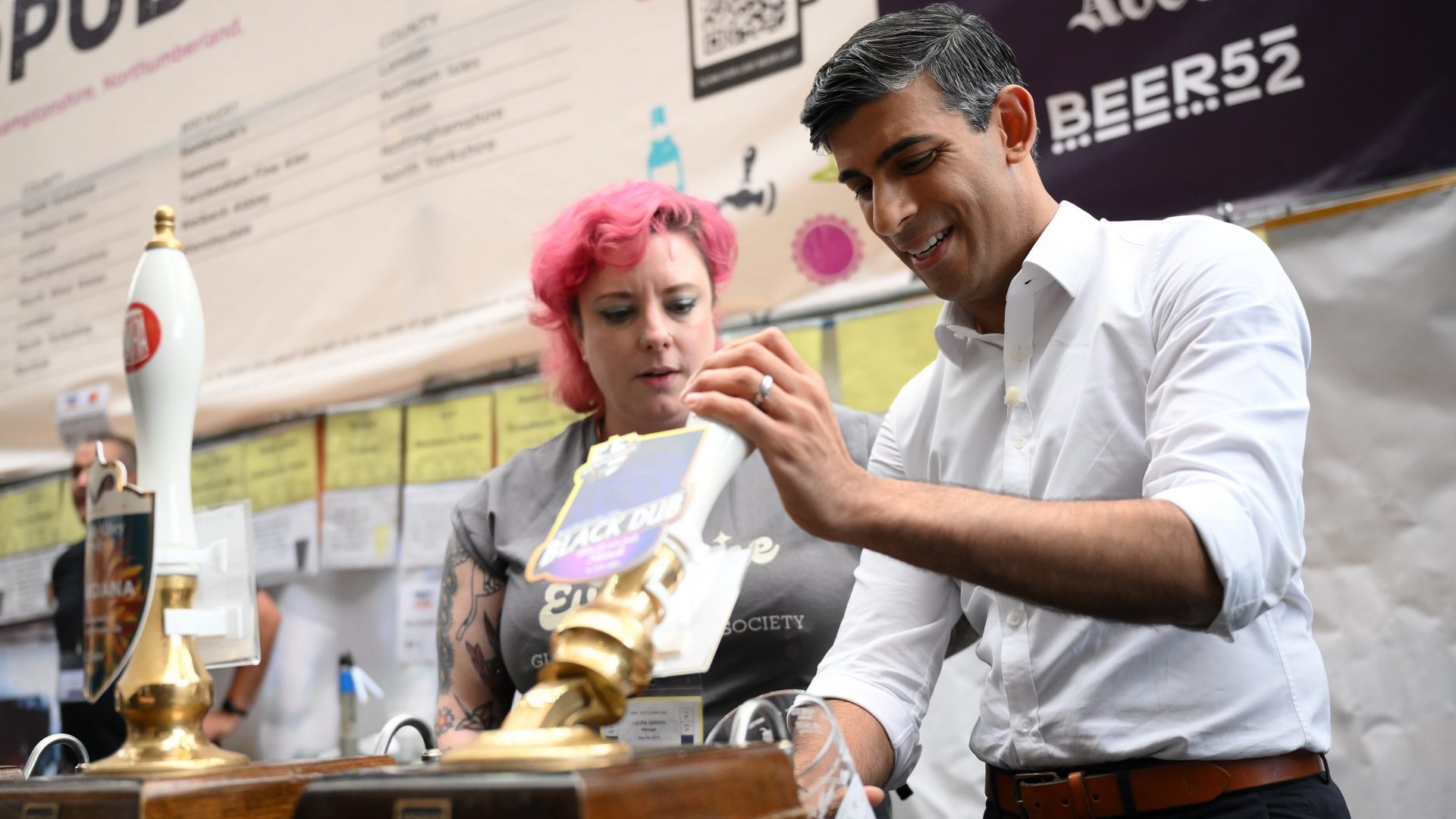
Under the Brexit Pubs Guarantee brought into effect on 1 August 2023, pubs will now always pay less alcohol duty than supermarkets to prevent them being undercut. The government has pledged that the duty pubs and bars pay on these drinks will always be less than the duty retailers pay.
'What a difference a year makes' Femi said after posting the two articles side by side to show how badly Brexit is really going
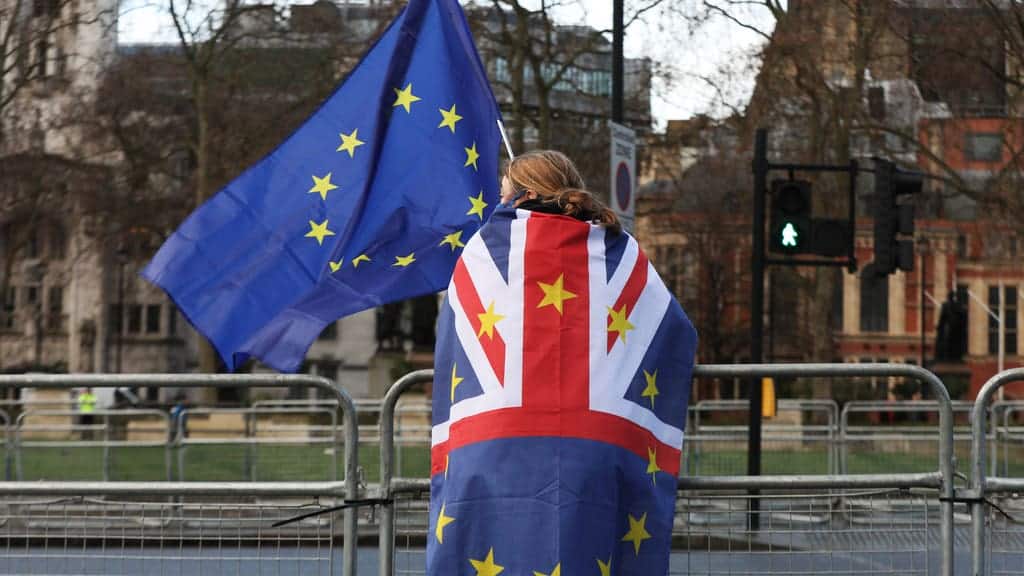
The mass participation event, run by Hotchilee, will see its 20th and final edition of its current format in 2024

The leading London to Paris organised cycling event, officially partnered with the Tour de France in recent years, will run its current closed road format for a final time in 2024 on account of the ‘ever-growing complications of Brexit’ associated with organising an international cycling event.
The three-day closed-road event, organised by UK-based company Hotchillee, finishes each year beneath the Eiffel Tower a day ahead of the Grand Tour finale and is accompanied by a Tour de France escort.
The event, which has seen over 10,000 riders participate across two decades, is accompanied by extensive support cars and crew and has frequently been ridden by Tour de France winners and ex-pro cyclists, including Magnus Bäckstedt, Sarah Storey, Sean Kelly and Stephen Roche.
While aiming to continue beyond 2024 in a new format, organisers have cited several difficulties in hosting the closed-road event over recent years, from carbon footprint to road closures to Brexit. Principal among the event's challenges, though, has been that organisers are no longer able to move competitor's bikes across the UK-France border frictionlessly.
Like shameful family secrets, Britain suppresses the realities of how badly Brexit has gone

“Those voters do not want to have a conversation about Brexit,” said Joshua Simons, the director of Labour Together, a think-tank close to Labour leadership. How dare they prioritise one group of voters over all others?
Ellwood thinks that the election will bring release and hope: “I can see all parties embracing the idea of rejoining the single market… I put money on it that it happens in the next five years.” After so many years of Brexit thought compliance, will this country be in a fit state to take such big steps? I don’t think so.
Andrew Canessa shines a light on the problematic nature of Gibraltar's border with Spain, and the protracted efforts to resolve the issue.
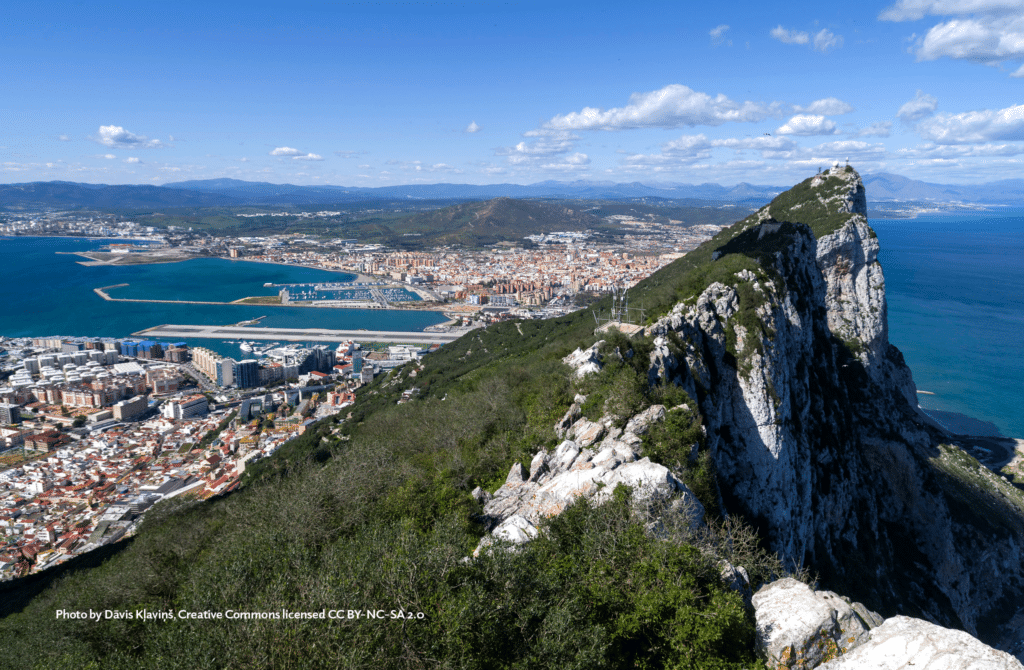
> Some kind of solution is in the interest of all parties and the one being pursued is that Gibraltar be part of Schengen, an area without internal border controls. The border between Gibraltar and Spain – which started out as a fence erected in 1909 to stop dogs with tobacco strapped to their backs running across the isthmus – would be no more and there would be free movement of people and goods between Gibraltar and Spain. However, the EU insists that Spain would then have responsibility for the EU’s external border and the idea that Spanish officials would be on Gibraltarian territory is something close to anathema for many Gibraltarians as it triggers a profound anxiety of a Fascist and irridentist Spain which shut the border in 1969. This is an anxiety sharpened by the electioneering of the right-wing Vox party whose leader, Santiago Abascal, said anything short of sovereignty over Gibraltar would be a ‘betrayal’, and the recovering of sovereignty over Gibraltar was in the centre right People’s Party’s (PP) July manifesto.
For Gibraltarians, the idea of ‘Spanish boots on the ground’ is a profound red line. One current proposal is that Frontex, the European Union Border and Coastguard Agency, maintain the Schengen border for a four-year transition period after which Spanish officials take over. The Gibraltar Government is quite clear that this is unacceptable.
The border has a profound significance for Gibraltarian identity. Even when crossing it can be hot and tiring and deeply frustrating, it also provides a deep sense of security for Gibraltarians. Without the border not only do Gibraltarians feel physically threatened but there are profound identitarian issues too, since that border – mental and physical – has a role in maintaining Gibraltarian identity. It is difficult to exaggerate the anxiety the prospect of uniformed Spanish officials on Gibraltarian soil produces among Gibraltarians, and this is especially so when not only Spain’s far-right Vox party but increasingly the PP are reviving a nationalist politics long thought defunct although in the recent Spanish elections it is widely understood that the PP’s willingness to govern with Vox cost them votes.
Tuna from Mauritius sourced as an alternative to Great Britain following Brexit took nine months to reach its Northern Ireland customer after a paperwork mistake, the Belfast Telegraph can reveal. Henderson Foodservice said it turned to Mauritius as a source because getting tinned tuna from Great Britain was no longer commercially viable under post-Brexit arrangements. But managing director Cathal Geoghegan, who’s also the recently appointed president of the NI Chamber of Commerce, said an order made in September last year was not successfully delivered until June. Normally, deliveries from Mauritius would take two to three months, compared to two or three weeks for orders coming from Liverpool.
He explained that the tins of tuna were initially turned away at Belfast Harbour because an administrator in Mauritius had ticked the destination box marked ‘Great Britain’ instead of ‘UK’. “The key driver here was from a commercial perspective, as taking the tuna in from the previous Great Britain supply chain/route would have resulted in an additional tariff payable of some 24%, which we would have had to unfortunately pass onto our customer base. "Therefore our decision was focused on ensuring a competitive product price for our customer base.” The tuna from Mauritius was finally delivered in June. “That’s a live example of the bureaucracy of Brexit problems,” said Mr Geoghegan. The business had been forced to find emergency sources of tuna at an inflated cost as a result of the error, he said. But Mr Geoghegan said he hoped the Windsor Framework could solve some of the problems of trading between Great Britain and NI since Brexit.
However, he stressed it would not cure every ill, adding: “Business needs to be part of the solutions and discussion with UK and EU government, and that's where the Chamber comes into its own.” Checks on fishery products entering ports are completed by district councils under the authority of the Food Standards Agency (FSA). The FSA confirmed that Henderson Foodservice's shipment had been stopped. It said: “Consignments of products of animal origin, such as canned tuna, in line with official controls legislation governing imports, must be accompanied by an appropriate export health certificate certifying the product meets public health rules applicable within the country of import. “In this instance, the certifying officer in the country of export completed an incorrect certificate and so it could not lawfully enter Northern Ireland on first arrival. "It is important for traders to ensure consignments are accompanied by the correct certificate for the country of import to avoid such issues arising.”
Mr Geoghegan spoke to the Belfast Telegraph as a House of Lords committee concluded that the Windsor Framework had improved upon the NI Protocol but that problems remain. Peers’ report on the economic, political, legal and constitutional impact of the deal found the framework's benefits included the eased movement of retail goods; agri-food produce, including chilled meats; parcels; pets; and human medicines via the green lane. Goods being sent from Great Britain can stay in the green lane if they are not being sent on to the Republic, while those at risk of being sent over the border will be placed in a red lane, which will be subject to more checks. Peers cautioned that for some businesses the processes under the framework will be more burdensome than under the protocol as it is currently being implemented. That is because the protocol, as it stands, is still being operated inside grace periods and with exemptions.
Mr Geoghegan confirmed that the new ‘green and red lane’ arrangement meant different rules for different parts of the Henderson Group, which owns Henderson Foodservice. “We operate north and south of the border, whereas my sister business, Henderson Wholesale, which operates the Spar franchise in the north of Ireland, solely operates north of the border. “All goods Henderson Wholesale takes through from Great Britain can come through the green channel. “But unfortunately all the goods that we take through from UK into NI for Henderson Foodservice will have to come through the red channel, because there is a risk that they will be sold in the Republic.” And the framework does not alter the application of tariffs needed to bring items such as tuna from Great Britain in future, he said. Former DUP MP Lord Dodds said the House of Lords report highlighted problems which made the framework even more burdensome than the protocol. “One key conclusion is that the Windsor Framework makes things worse for many businesses compared to what they have experienced up to now,” he said. “The original protocol was unworkable and could not be implemented without major damage to our economy. That led to grace periods and easements. "Now these are to be done away with and replaced with the more onerous and burdensome Windsor Framework provisions.”
Academics say any gains will depend on the possible future expansion of the CTPPP, which as things stand looks both unlikely and undesirable.

Academics say any gains will depend on the possible future expansion of the CTPPP, which as things stand looks both unlikely and undesirable.
‘His Brexit is responsible for thousands of British citizens living abroad losing their UK bank accounts. Funny old world…’
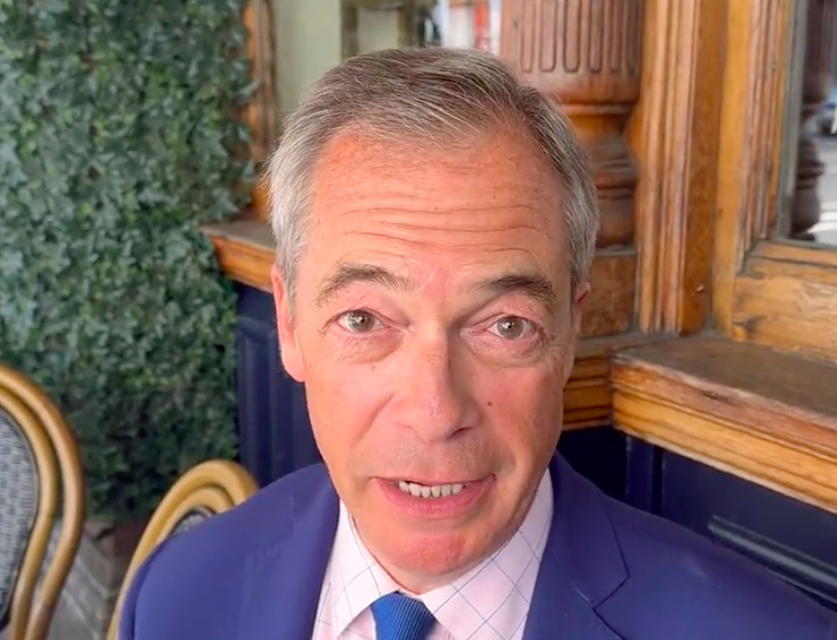
‘His Brexit is responsible for thousands of British citizens living abroad losing their UK bank accounts. Funny old world…’
‘Bregret’ stands at highest level recorded to date
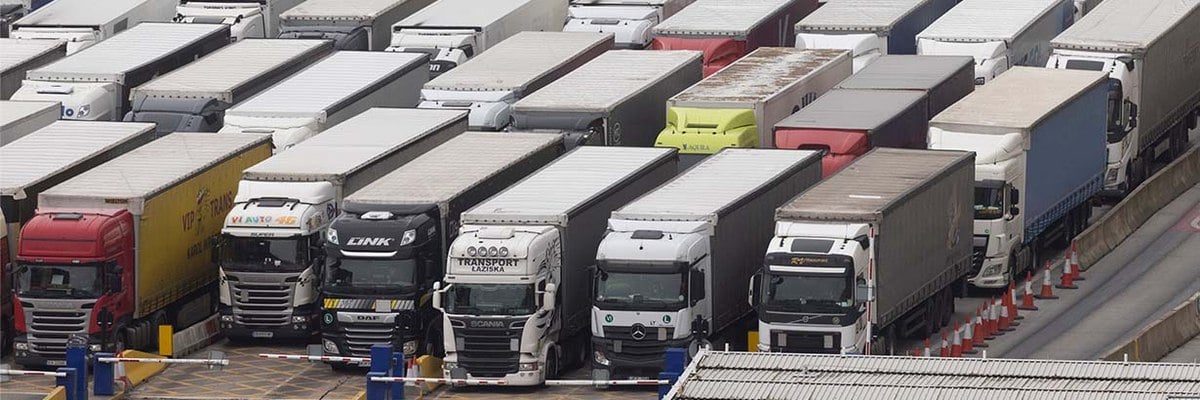
How would Britons vote if the EU referendum were taking place in 2023?
A majority of Britons (55%) say that, were the EU referendum taking place now, seven years after the original date, they would vote to Remain. Three in ten 31% say they would vote to Leave. This gives a headline voting intention of 64% to 36%.
The results show that one in six Leave voters (18%) now say that they would vote to Remain were the EU referendum being held now. Almost three quarters (73%) say they would still vote to leave the EU.
Remember those doom-laden prophesies that Brexit would render the UK an isolated irrelevance on the world stage? Or that it would trigger a flight of multi-national companies from these shores?
Two announcements this week have given the lie to both those shibboleths, while hammering home the tangible benefits of leaving the EU.
Tata Group, the Indian conglomerate which owns Jaguar Land Rover, will construct its £4 billion electric car battery plant in Somerset, creating thousands of skilled jobs.
The firm considered locating the cutting-edge factory in Spain. But thanks to Brexit, Britain won the battle.
Unshackled from the bloc, we were able to provide subsidies quickly, rather than getting bogged down for years by the deadening bureaucracy in Brussels.
The second Brexit bonus was joining the Trans-Pacific Partnership, a trading alliance which generates 13 per cent of global income. Stuck in the economically-calcifying EU, striking such an exciting deal would have been forbidden.
Predictably, the anti-Brexit brigade – led inevitably by Labour and the BBC – belittles these achievements. Obsessive hatred of Britain's newly restored sovereignty blinds them to any advantages it brings.
But couldn't the Government at least trumpet the benefits? There have, after all, been notable successes: The vaccine rollout and our early, strong support for Ukraine to name but two.
We know Chancellor Jeremy Hunt is a Remainer. But it is inexplicable that Brexiteer Rishi Sunak seems so reluctant to champion and exploit it.
Brexit is not just about constructing new commercial and diplomatic relationships around the world. It is about imagining and building the country Britain can be in this new, exciting era.
Despite at times being disappointed by our politicians' lack of ambition, the Mail remains convinced of its almost limitless potential. The PM should embrace it.
For if the project flops, it will be seen as a catastrophic Tory failure.
Can't BBC say sorry? Whenever a media organisation finds itself in hot water after making a mistake, what a commotion the BBC causes.
Clambering aboard its moral high horse, it howls with outrage and demands apologies. But if the corporation gets something badly wrong, it is not so quick to wear sackcloth.
Take the Coutts scandal. Nigel Farage suggested last month that the private bank had closed his account due to his political views. But the Remainer-packed BBC gleefully claimed it was because the ex-Ukip leader was no longer wealthy enough.
Nigel Farage (pictured) suggested last month that the private bank had closed his account due to his political views. But the Remainer-packed BBC gleefully claimed it was because the ex-Ukip leader was no longer wealthy enough
This turned out to be a pack of lies, briefed by the bank itself. It is outrageous that the BBC behaved less like the state broadcaster, and more like Coutts' spin doctor.
Of course, no one should be surprised. The 'woke' values the bank flaunts are shared entirely by the corporation.
The financial bullying of Mr Farage was an assault on free speech.
Last night, he received a mealy-mouthed apology from the boss of NatWest, which owns Coutts. Is it too much to hope for the BBC to also say sorry?
Eco-egos out-clowned
Just Stop Oil activists plainly get a perverse thrill from disrupting our lives.
So how satisfying that these eco-clowns got a taste of their own medicine when a planned 'slow walk' road demo in London was thwarted by a counter-protest.
True, the heroes were YouTube pranksters. But a serious point remains.
If politicians and police continue to twiddle their thumbs as environmental doom cults bring chaos, there is a risk the public will take the law into their own hands.
Brexit’s impact on the UK’s cycling industry is once again under the spotlight after FLi Distribution’s director blamed the “red tape and barriers to trade” currently affecting businesses as the Huddersfield-based distributor ceased trading with immediate effect.
FLi – which began life in 2008 as FLi Race Team Management, before transitioning to distribution – was known for supplying KTM bikes to the UK for over a decade, a relationship which ended in April this year.
The distributor notified dealers and suppliers of its decision to cease trading earlier this month, with director Colin Williams citing the impact of Brexit, the complexities and restrictions surrounding UK and EU trading, and the difficulties facing the bike industry in the post-Covid lockdown period as the main reasons behind FLi’s demise.
Confirming the news, Williams posted on LinkedIn: “That’s it, FLi is done. Thank you to everyone who’s supported FLi over the past 15-plus years… it would not have been possible without all of you who’ve helped out in thousands of ways, making 99 percent of my time running FLi so much fun. So if you’ve helped in any way, thank you, it’s been a great ride.
“But if you voted for Brexit, please realise this is 90 percent because of your decision back in 2016. I have no idea what will be next, but as the people close to me know, whatever it is, it’ll be better than the last 18 months.
“I’m done fighting, I’m done with the red tape and the barriers to trade. It hadn’t been fun for some time, so the time was right to end it now, life is too short. The relief now the decision is made is amazing, but I am so sorry for any negative impacts it will have on anyone and I’m doing my best to resolve any and all of them where I can.”
Earlier this year, Williams told the road.cc Podcast that the bottom line of companies in the UK bike industry is being squeezed like never before, thanks to the supply chain and manufacturing disruption brought on by the pandemic, as well as the impact of Brexit on trade.
He explained that because many brands service the European market through distribution operations within the EU, this means that typically products will arrive in the UK from the bloc – adding on not just administrative burdens but also costs for distributors and retailers here.
Those additional costs have had a crippling effect on the UK’s cycling distributors, with FLi the latest in a growing line of distribution companies to cease trading this year alone.
In May, Livingston-based distributor 2pure entered administration, just months after the company announced that it was restructuring to focus solely on the cycling industry, following what it described as a “highly volatile” 2022 caused by macro-economic events in the wake of the Covid-19 pandemic and Russia’s invasion of Ukraine.
And in March, Moore Large, the leading UK distributor for well-known brands such as Tern Bicycles, Lake, Forme, ETC, Emmelle, and MeThree, entered liquidation, leading to its £35 million product inventory being auctioned off.
Formed from the bike shop opened by John Moore in 1947, the Derby-based distributor was founded 30 years later and owned by the Moore family up until last year when, following growth since the pandemic, the board’s directors bought ownership from the family.
Dale Vanderplank, Adam Garner, Adam Biggs, and Andrew Walker acquired the business on 19 April 2022, with retiring chairman Nigel Moore at the time saying that the “last few years have been particularly successful and it is now the right time for me to hand over the company to the existing management team”.
However, four months ago the company confirmed its closure, adding to an increasingly bleak time for a UK cycle industry beset by inflation, changing consumer habits, overstock, and a challenging economic climate.